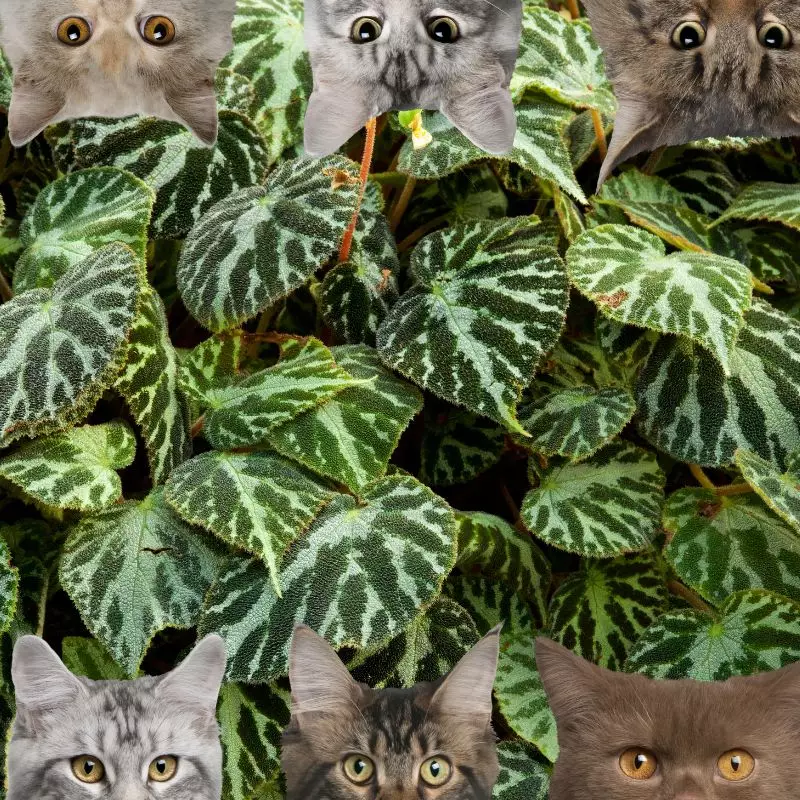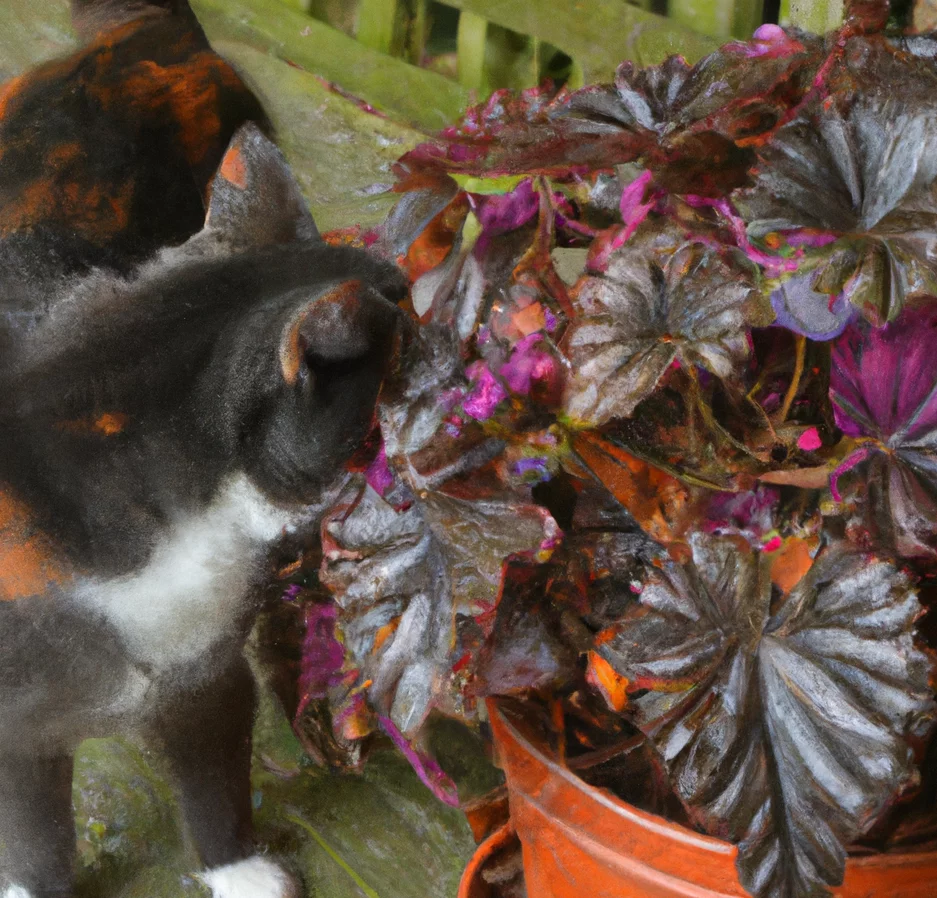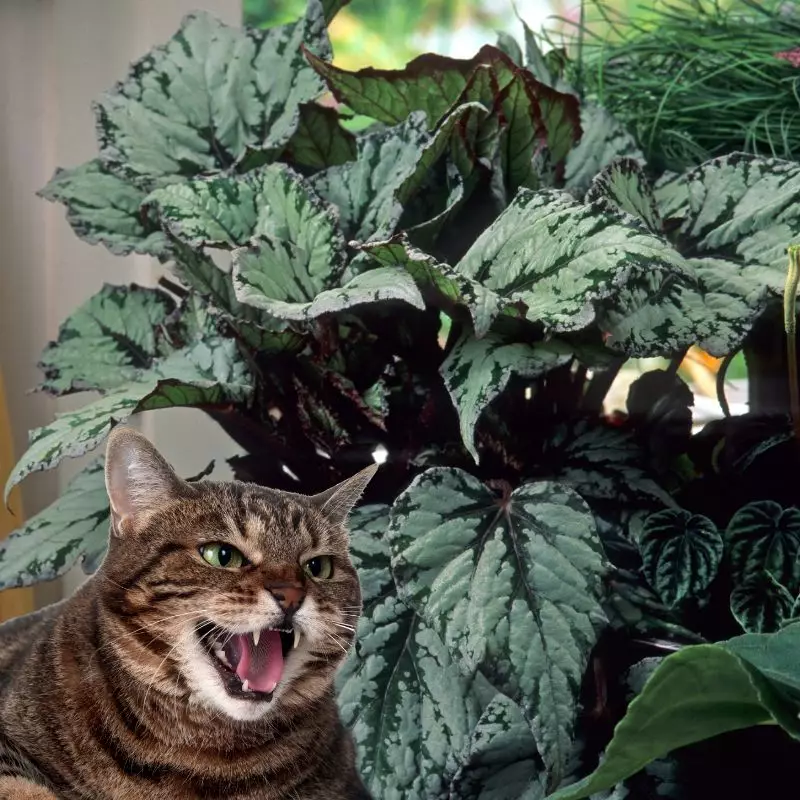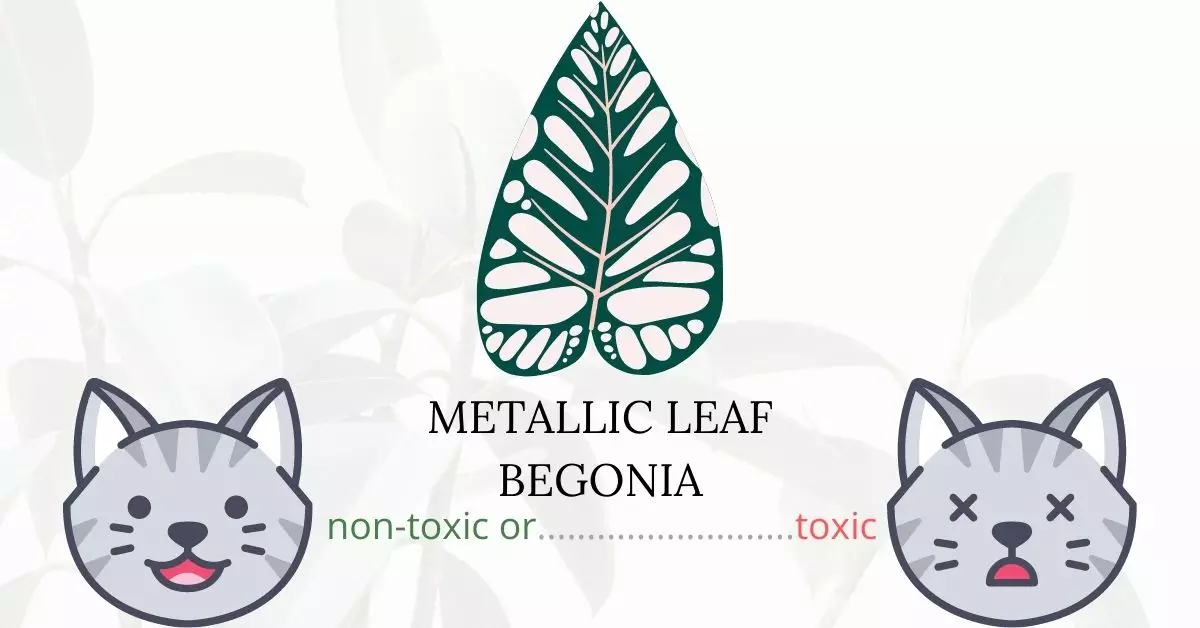Yes, Metallic Leaf Begonia is toxic to cats. It is a species of the begonia genus and, like its relatives, contains significant amounts of a substance known as oxalate. When ingested by cats, these oxalate crystals can embed in various tissues, causing irritation and discomfort. Moreover, these crystals can break down into oxalic acid, intensifying the discomfort. If consumed in large quantities, the toxins may progress to the cat’s liver, potentially leading to severe consequences, such as organ failure and even death.
This article was crafted in close collaboration with a team of experienced DVMs (doctors of veterinary medicine). Their invaluable insights ensure that we deliver accurate and up-to-date information on the potential risks of various plants, including the Metallic Leaf Begonia, and their effects on cats. Furthermore, our findings are supported by research from high-authority websites, such as ASPCA and PetMD, guaranteeing a comprehensive understanding of every plant we discuss.
Clinical Signs of Metallic Leaf Begonia Poisoning in Cats

The ingestion or contact with the Metallic Leaf Begonia can result in a series of noticeable clinical signs in cats, each with its underlying cause:
- Excessive drooling: This is often one of the first signs and is the cat’s natural response to remove irritants, in this case, oxalate crystals, from the mouth and throat.
- Oral irritation: Oxalate crystals present in the plant can embed themselves in the cat’s soft oral tissues, leading to an immediate stinging or burning sensation.
- Redness around the mouth: This can be an indication of dermatitis or skin inflammation caused by contact with the plant’s irritants.
- Pawing at the mouth: A cat may do this in an attempt to alleviate the discomfort or remove any plant residue lodged in their mouth or teeth.
- Swelling of the mouth and tongue: The irritation and inflammation caused by the crystals can lead to noticeable swelling as the body tries to combat the foreign irritants.
- Vomiting: This can occur if the cat has ingested a part of the plant. The body tries to expel the ingested toxins, leading to vomiting as a protective mechanism.
- Dehydration: Frequent vomiting, along with excessive drooling, can lead to a loss of fluids, causing dehydration.
- Swallowing difficulties: The inflammation and irritation in the throat, combined with the swelling, can make swallowing a painful challenge for the cat.
- Loss of appetite: Due to the discomfort and potential pain associated with eating, a cat might become hesitant to consume food after coming into contact with or ingesting the plant.
If you notice any of these signs in your cat after they’ve had contact with or consumed Metallic Leaf Begonia, it’s crucial to seek veterinary assistance promptly. Immediate care can prevent the development of severe conditions.
First Aid and Treatment of Metallic Leaf Begonia Poisoning in Cats

Intravenous fluid therapy, vomit induction, and the use of activated charcoal are common clinical treatments for plant poisoning in cats. In some cases, depending on the cat’s condition, a veterinarian may conduct gastric lavage. Anti-inflammatories will be also prescribed by the vet if the cat’s throat is swollen. This will reduce the edema and keep a clear airway. If your cat needs it, the veterinarian may prescribe further medications or perform other treatments.
Recovery from Metallic Leaf Begonia Poisoning in Cats

Symptoms of begonia poisoning are usually mild, and they go away in about 48 hours following treatment. Cats usually recover completely in two weeks or less, and follow-up visits to the veterinary office are rarely necessary. The doctor may recommend a prescription diet because it is gentler on the cat’s sensitive stomach and it also aids in clearing up the oxalate residues in the stomach.
Prevention of Metallic Leaf Begonia Poisoning in Cats
Ensure that your place does not have metallic leaf begonia. Avoid growing or bringing this plant into your home. Keeping your cat indoors is a must as this will reduce the chances of encountering a metallic leaf begonia and other toxic plants in the neighborhood.
If you love plants but have cats at home, check out these lists:





